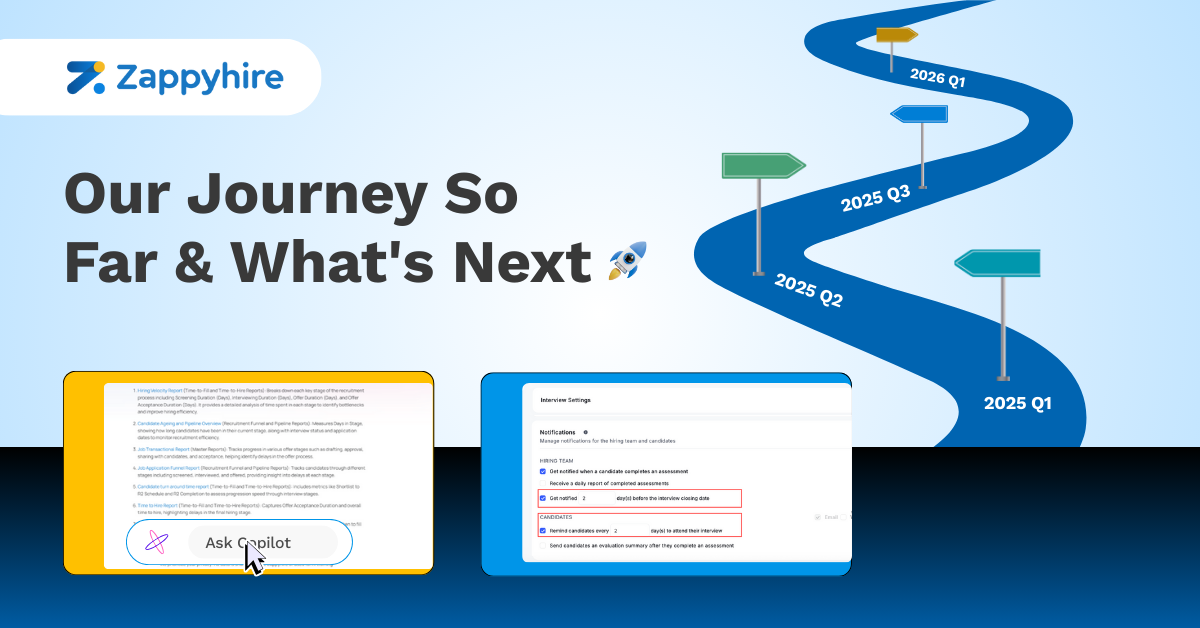
What is Candidate Ghosting?
Candidate ghosting is the act of a job seeker disappearing or cutting off all communication with a potential employer after an interview, job offer, or during the hiring process. Ghosting is a growing trend among job seekers that is becoming more common in today’s job market.
“About three-quarters of recruiters say they’ve been ghosted by a candidate, and nearly half (47%) of candidates admit to ghosting potential employers” – Monster
What is Interview Ghosting?
Interview ghosting occurs when a candidate fails to show up for a scheduled interview or stops responding to communication after an interview. Interview ghosting is particularly frustrating for recruiters since they have invested time and resources into screening and scheduling candidates.
Why are Candidates Ghosting Recruiters?
- A Better Offer Came Along
One of the primary reasons candidates ghost recruiters is because they receive better job offers elsewhere. In today’s job market, it’s common for candidates to apply to multiple positions simultaneously.
If a candidate receives a more attractive job offer while they are still in the interview process with another company, they may choose to accept the new offer and stop responding to the first company’s communication. They may choose to accept another offer or continue their job search, leaving recruiters and employers in the dark.
- Poor Candidate Experience
This can include a lack of communication, unclear job descriptions, or long hiring processes. Candidates may feel disrespected or undervalued, leading them to lose interest in the position or the company.
A slow or unorganized interview process can be a turn-off for candidates. If the hiring process takes too long, candidates may feel frustrated and lose interest in the position. Likewise, if the interview process is unorganized and communication is poor, candidates may feel that the company isn’t a good fit for them. Employers should strive to keep the interview process moving efficiently and communicate regularly with candidates.
- Fear of Confrontation
Some candidates may feel uncomfortable giving negative feedback to an employer about why they are no longer interested in the position. This can lead to them simply ghosting the employer instead of explaining their reasons for pulling out of the hiring process. It’s important for employers to create a culture where candidates feel comfortable giving honest feedback, even if it’s negative.
- Personal Circumstances
Candidates may have personal circumstances that prevent them from continuing with the hiring process. They may experience a family emergency, health issue, or personal problem that makes it difficult for them to communicate with the employer.
- Mandatory Return-to-office Policy
For some job seekers, the idea of returning to an office environment may be a deal-breaker. They may have become accustomed to working from home and may not be willing to give up the flexibility and work-life balance that remote work offers. Additionally, some employees may be worried about the health risks associated with working in an office environment, especially if they have underlying health conditions or family members who are at risk. If a company suddenly implements a mandatory return-to-office policy without providing employees with adequate information or options, it can lead to confusion and frustration.
This can be particularly challenging for job seekers who are still in the interview process. They may feel uncertain about the company’s plans and may not want to commit to a job that requires them to work in an office.
As a result, some job seekers may simply stop responding to messages or withdraw their applications altogether. This can be frustrating for recruiters and employers, who may have invested time and resources in the hiring process, only to be left without a candidate.
What Are The Consequences of Candidate Ghosting?
- Wasted time and resources
Recruiting and hiring are resource-intensive processes, requiring significant time and effort from recruiters and employers. When a candidate ghosts, all of that time and effort may go to waste, forcing recruiters and employers to start the hiring process over again. This can be frustrating and costly, especially if the position remains unfilled for an extended period of time.
- Damage to employer reputation
In today’s highly competitive job market, employer brand is everything. When a candidate ghosts, it can damage the employer’s reputation and make it more difficult to attract top talent in the future. Candidates who have a negative experience with a company are more likely to share their experience with others, potentially dissuading other job seekers from applying for positions with that company.
- Missed opportunities
When a candidate ghosts, recruiters and employers may miss out on the opportunity to hire a highly qualified and talented individual. This can be especially damaging if the position is difficult to fill or if the company is competing with other organizations for top talent.
- Disruption to workflow
If a candidate ghosts after being hired, it can cause significant disruption to workflow and productivity. Employers may have to scramble to find a replacement or may have to redistribute work to other employees, leading to increased stress and lower morale.
- Legal issues
In some cases, candidate ghosting can lead to legal issues. For example, if an employer has extended a job offer and the candidate has accepted, but then ghosts before the start date, the employer may be left with no choice but to terminate the offer. This can potentially lead to legal action if the candidate feels that their offer was wrongfully terminated.
How to Prevent Candidate Ghosting
- Improve Candidate Experience: Providing a positive candidate experience can help prevent ghosting. This can include clear communication, transparent job descriptions, and a streamlined hiring process.
- Follow-Up: Following up with candidates after an interview or job offer can help keep them engaged in the process. This shows that the employer is interested in the candidate and values their time.
- Be Clear About Expectations: Setting clear expectations about the hiring process, job responsibilities, and compensation can help prevent miscommunication and misunderstandings.
- Be Respectful: Showing respect for candidates can help prevent ghosting. This includes being on time for interviews, providing timely feedback, and treating candidates with kindness and professionalism.
How can technology help prevent candidate ghosting?
Recruiting technology can be of huge help in preventing candidate ghosting.
- Automated reminders and notifications
One of the main reasons candidates ghost is because they forget about interviews or other hiring-related appointments. Automated reminders and notifications can help prevent this by sending candidates regular updates and alerts. For example, a recruiter might use a scheduling tool that sends automated reminders to candidates before interviews and other appointments.
- Chatbots and virtual assistants
Chatbots and virtual assistants can provide candidates with the information they need throughout the hiring process. These tools can answer frequently asked questions, provide updates on the status of an application, and offer guidance on the next steps. By providing candidates with a way to get the information they need, recruiters and employers can reduce the likelihood of ghosting.
- Video interviewing
Video interviewing is becoming increasingly popular as a way to screen candidates without requiring them to come into the office. Video interviews can help reduce the likelihood of ghosting because they are more convenient for candidates. Additionally, video interviews can be recorded, which means that recruiters and employers can refer back to them if necessary – not to mention some software come with automated assessments.
- Applicant tracking systems
Applicant tracking systems (ATS) can help recruiters and employers keep track of where candidates are in the hiring process. ATSs can track communications with candidates, schedule interviews, and provide automated updates on the status of an application. By using an ATS, recruiters, and employers can ensure that candidates are always aware of where they stand in the hiring process.
- Personalized communication
Personalized communication can help candidates feel more engaged and invested in the hiring process. By using tools such as email marketing and personalized landing pages, recruiters and employers can create customized experiences for candidates. This can help build relationships and reduce the likelihood of ghosting.
Recommended Reading:
10 Features to Look for Before Opting a Recruiting Software in 2023
Don’t Let Ghosting Haunt Your Hiring Process
So there you have it – the top reasons why candidates ghost employers and how technology can help prevent it. It’s clear that ghosting can have significant consequences for recruiters and employers, from wasted time and resources to damage to an employer’s reputation and missed opportunities.
But fear not! By being transparent, and communicative, and utilizing technology, you can reduce the likelihood of candidate ghosting and ensure that your hiring process runs smoothly.
So, whether you’re a recruiter or an employer, remember to keep your communication lines open, set clear expectations, and leverage technology to your advantage.
Remember, ghosting is only acceptable on Halloween. Let’s keep the communication alive and scare away the ghosts from our hiring process! Get in touch with us!





